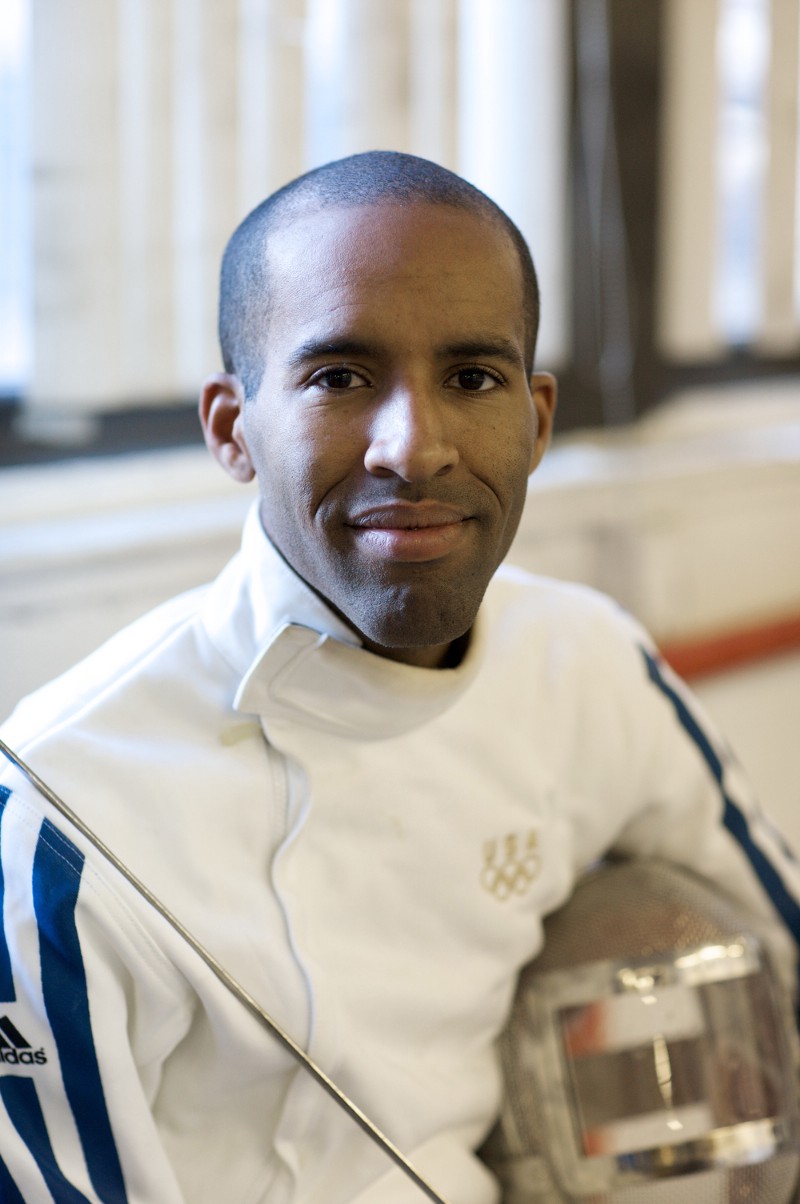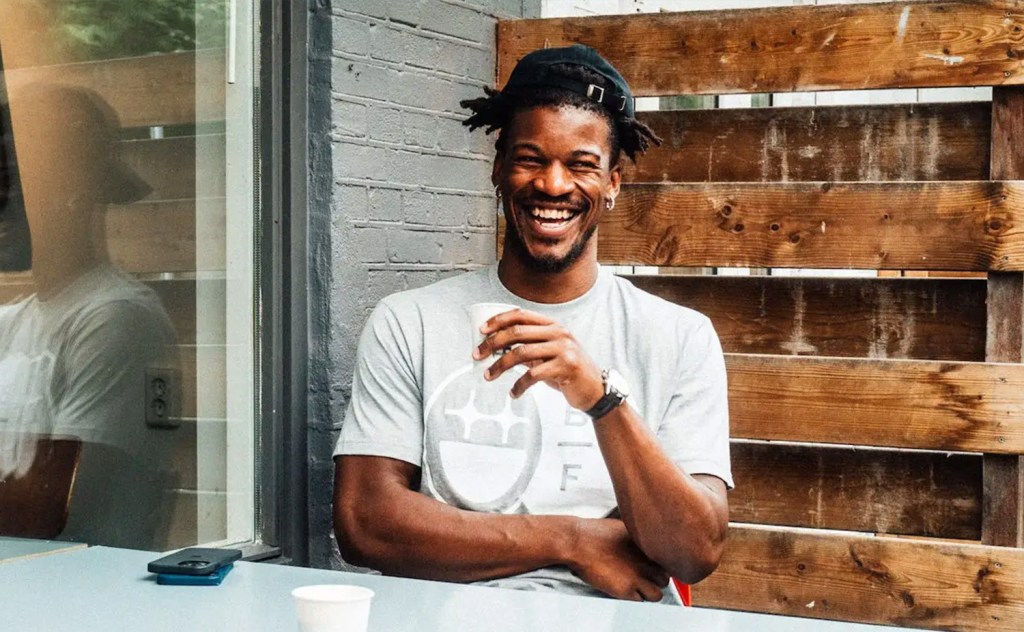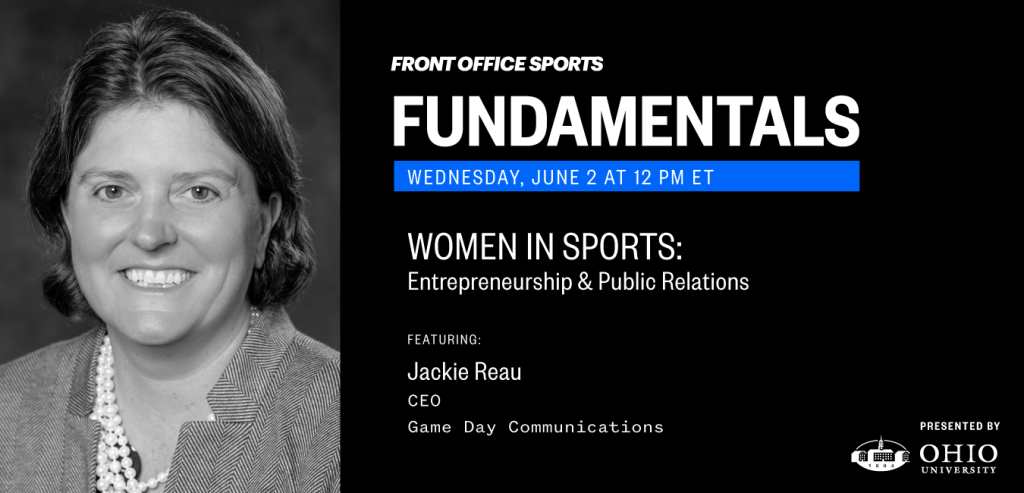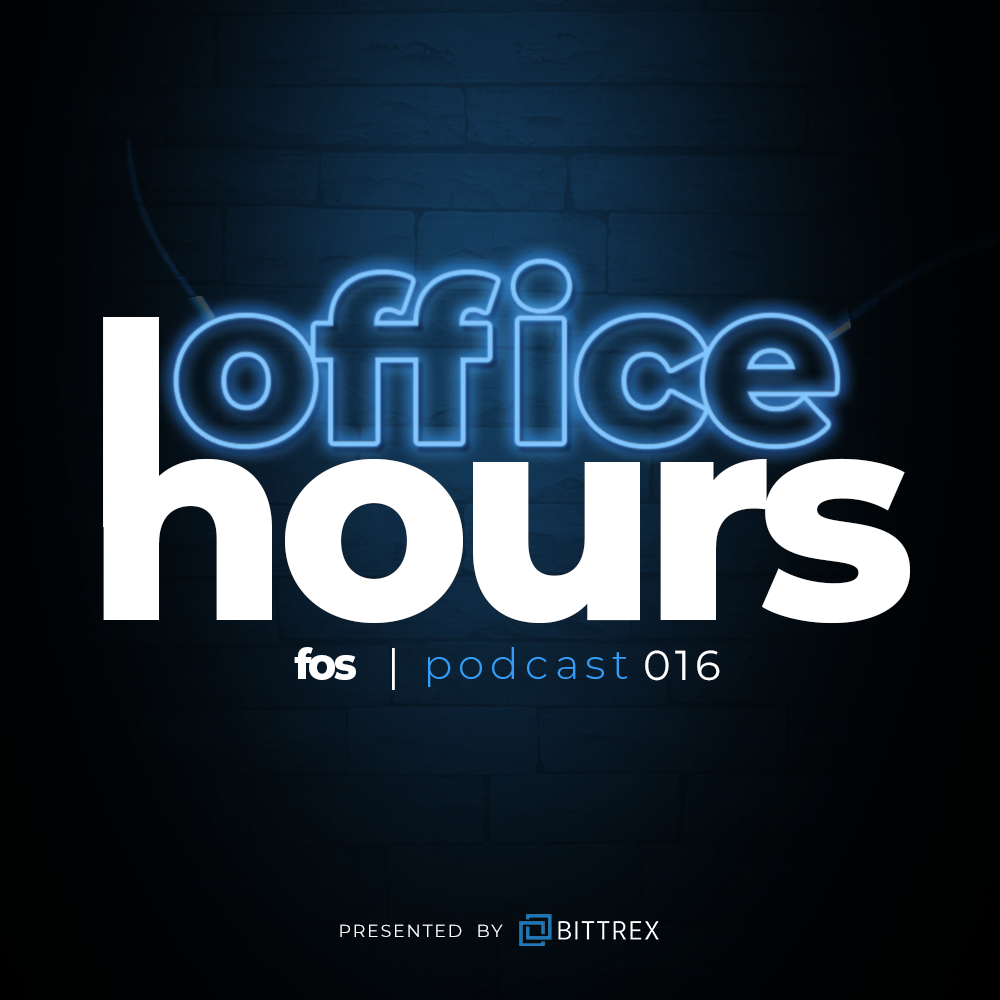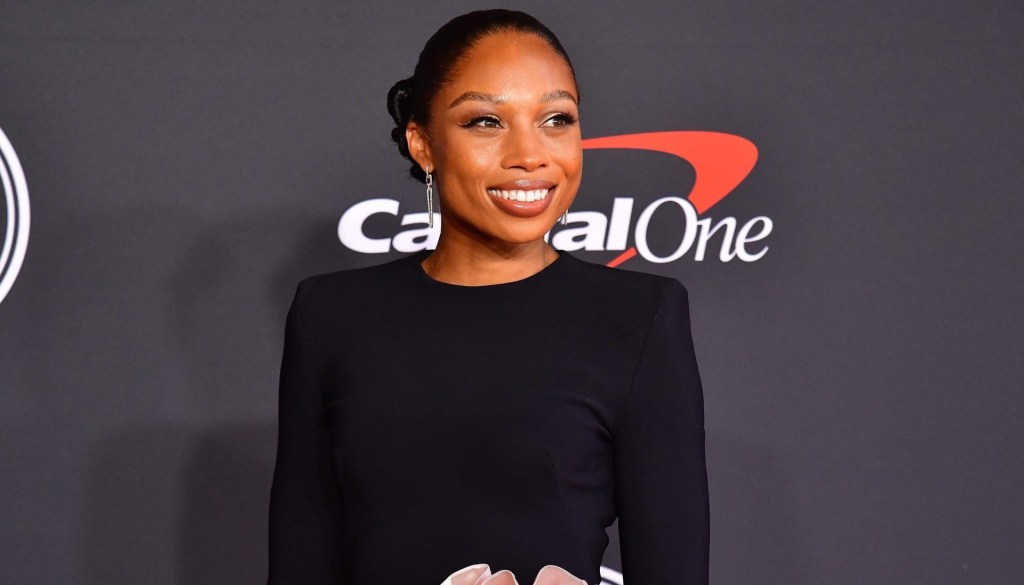This interview is presented to you by the University of Nebraska — Lincoln Master of Arts in Business with a Specialization in Intercollegiate Athletics Administration.
By: Amari Dryden, @Amari_Dryden

Keeth Smart is the Co-founder and COO for PHYSICLO, a fitness apparel company, which creates compression pants with built in resistance bands to make your body burn more calories in less time. He graduated from St. John’s University with a Bachelor’s degree in Finance and earned his MBA from Columbia University. In his twenties, Smart was an Olympic fencer and earned a silver medal in the 2008 Beijing Olympics in the Men’s Sabre Team event. He spent a decade traveling around the world, but he knew it was something he couldn’t sustain for the course of his life.
“Towards the end, I was burning out physically and mentally.”
In the last year of his quadrennial in 2007, he decided he wanted a change. He talked to his colleagues and mentors and they recommended he go to business school based on his background in finance. He did research about minorities going to business school and stumbled upon Management Leadership for Tomorrow (MLT).
“It really helped refine my thought process on why I wanted to go to business school and what I want to do after.”
He applied to business school while he was traveling in St. Petersburg, Russia. When he graduated from business school, he ended up working on Wall Street at Bank of America Merrill Lynch. Initially, he thought it would be fulfilling, but after working there for a couple of years, he realized it wasn’t the challenge he was seeking.
“I wasn’t passionate about it and that’s something MLT had drilled into me. You need to be passionate about your next endeavor. Banking was the least passionate thing I could have done.”
He met some medical students who were working on a project to help patients lose weight through resistance clothing. He thought it was a great idea because he had been using resistance bands throughout his fencing career while he was living in Europe. He started working with the students on nights and weekends and finally got to a point where he was confident they could get the business off the ground, so he quit his job and went all in.
“There’s always a big risk when you quit your job, but the risk isn’t as big as it may seem. It’s more of a fear. When you have a certain level of credentials like a great education and work experience, the risk isn’t as high. If I quit and PHYSICLO failed, I would just get another job. It’s not the end of the world. A lot of people lose sight of that. They drop out of college without having a strong backup plan. For me, I have a solid backup plan. Even if this business blows up tomorrow, I know I can get a job a week later.”
He was inspired to break into the fitness apparel world partly because he read about the origin of Nike and Under Armour and how their founders were former athletes. Smart also loves working out and wanted to do something where he was working in a field where he was working out and being around athletes. It was a perfect marriage for him.
His favorite aspect of his job is the sales process where he talks to coaches, athletes and fitness trainers, showing them that his product works.
“There’s always skepticism when people see something new. They ask, ‘Does this really work?’ When they get the chance to try it and they love it, that’s my favorite part. Nothing’s better than getting those responses.”
His preparation for creating his business was the same as his preparation for a fencing match. He stressed that when you’re in the Olympics, you’re taught to do a lot of research on your opponent. This mentality of always having to know as much as you can about your opponent has followed Smart into the business world.
“In fencing, if you have a game plan, once the bell goes off to start the match, you have to be prepared to throw that game plan out the window. Never hold on too tight to any of your concepts. You have to be very adaptable and flexible. The issue with business is if you write a business plan and it seems like a great idea on paper, but when you get out there and start testing it, you have to be able to change it to respond to the needs of your clients. It’s very similar to fencing where you have a game plan, but once the match starts or you start selling, you have to be flexible.”
“If you say your way is the right way and don’t change it when you need to, it’s a recipe for disaster. It’s the same thing in fencing. If you say you’re only going to hit this person with this type of move because it’s the move I’ve been working on my whole life that too is a recipe for disaster.”
One of the challenges he’s had is getting the product right. They have created over 200 prototypes and neither Smart, nor his co-founder, had a background in fashion. They had to learn about the trends in the fashion industry to make the best product as well as find ways to generate awareness.
“Everybody knows about Nike, Lululemon and Under Armour. Getting people to know about us was really hard.”
Beyond marketing, one of the the biggest challenges they faced was failures in fundraising. To help him through the process, he has many mentors which he calls his, “board of directors.” A few of them are former Olympic fencers who have become entrepreneurs such as Bob Cottingham and Peter Westbrook.
“They have helped me stay grounded and motivated and encouraged me through all the ups and downs I’ve experienced.”
He also reaches out to his business school friends who are a year or two ahead of him and have been successful. He also draws inspiration from historical figures as he is an avid reader of biographies, especially about business owners and the trials and tribulations they went through and how they overcame them.
“There’s a lot of parallels regardless of the time period. Everyone is facing challenges of trying to get sales and build awareness.”
His advice for people who want to get into the fitness apparel world is do your research, but don’t overdo it. If you have an idea, put it out there and then collect feedback from your customers. Have a game plan, test your game plan by trying to get sales, and once you’ve done that, start iterating.
“The most important thing is to get out there and don’t listen to nay-sayers. The people who are saying you can’t do it are the people who wish they could do it.”
We would like to thank Keeth for his time and insight and we wish him the best in all his future endeavors! You can follow him on Twitter or connect with him on LinkedIn!

This interview was presented to you by the University of Nebraska — Lincoln Master of Arts in Business with a Specialization in Intercollegiate Athletics Administration.
